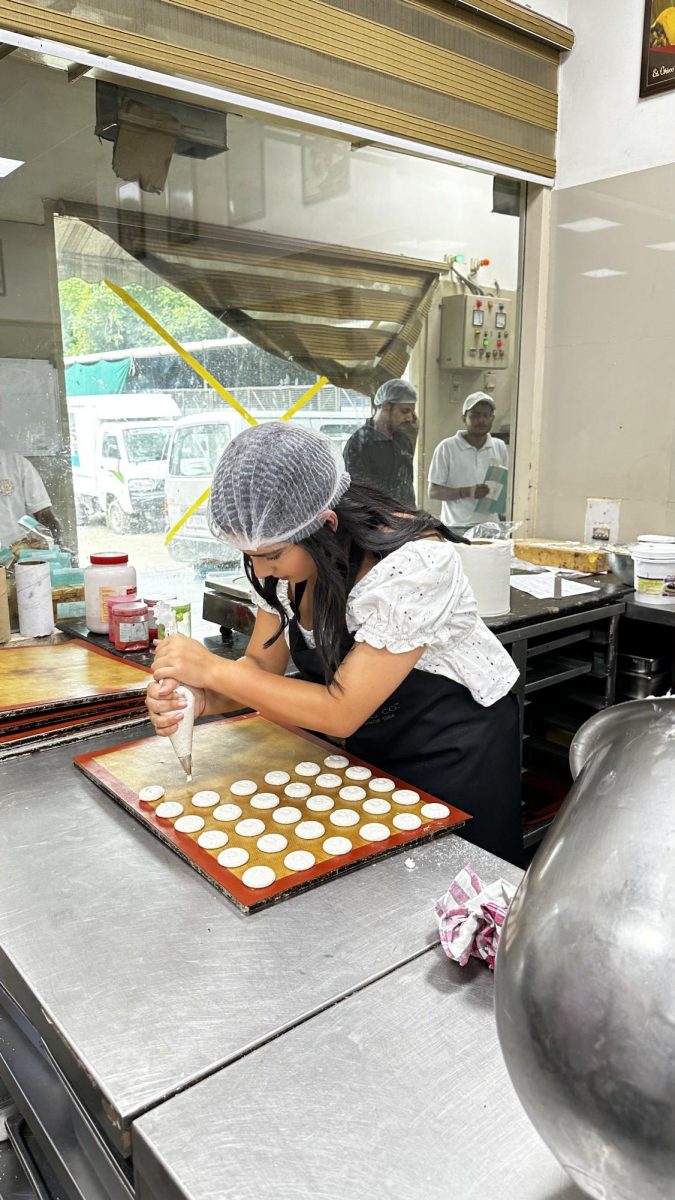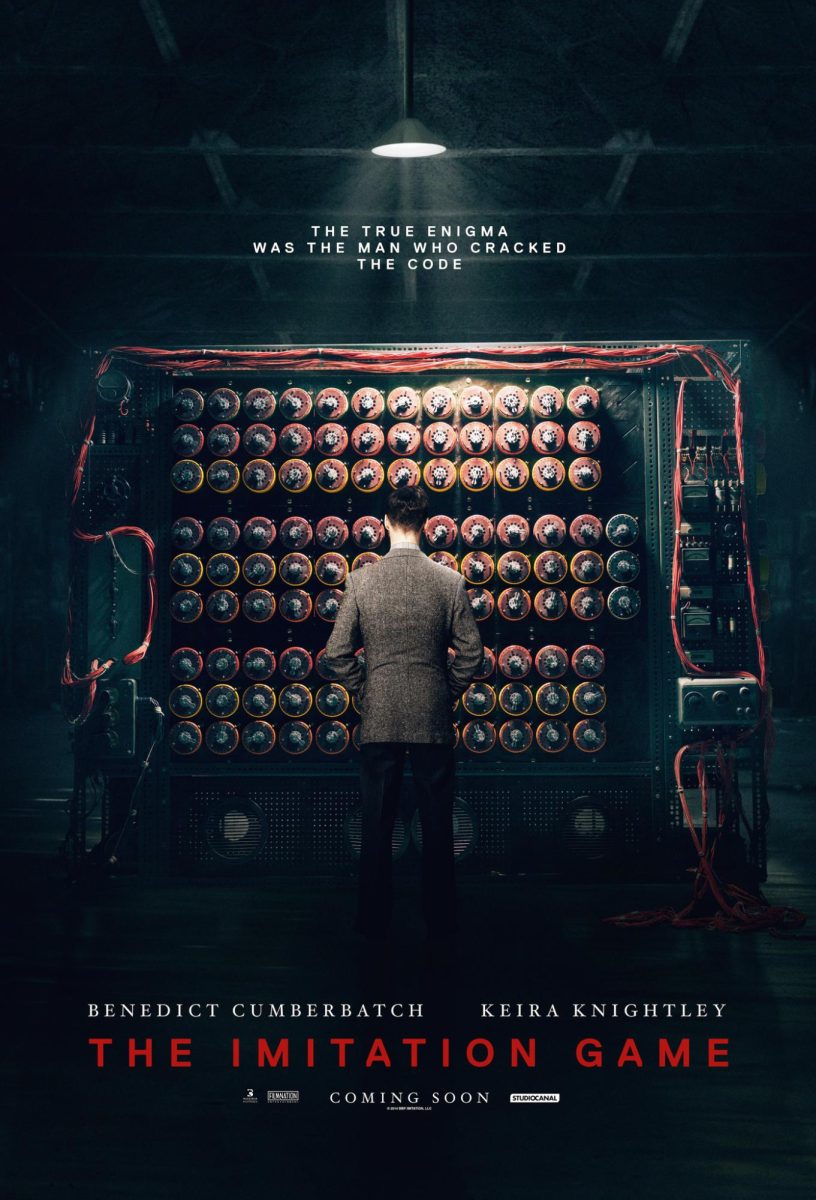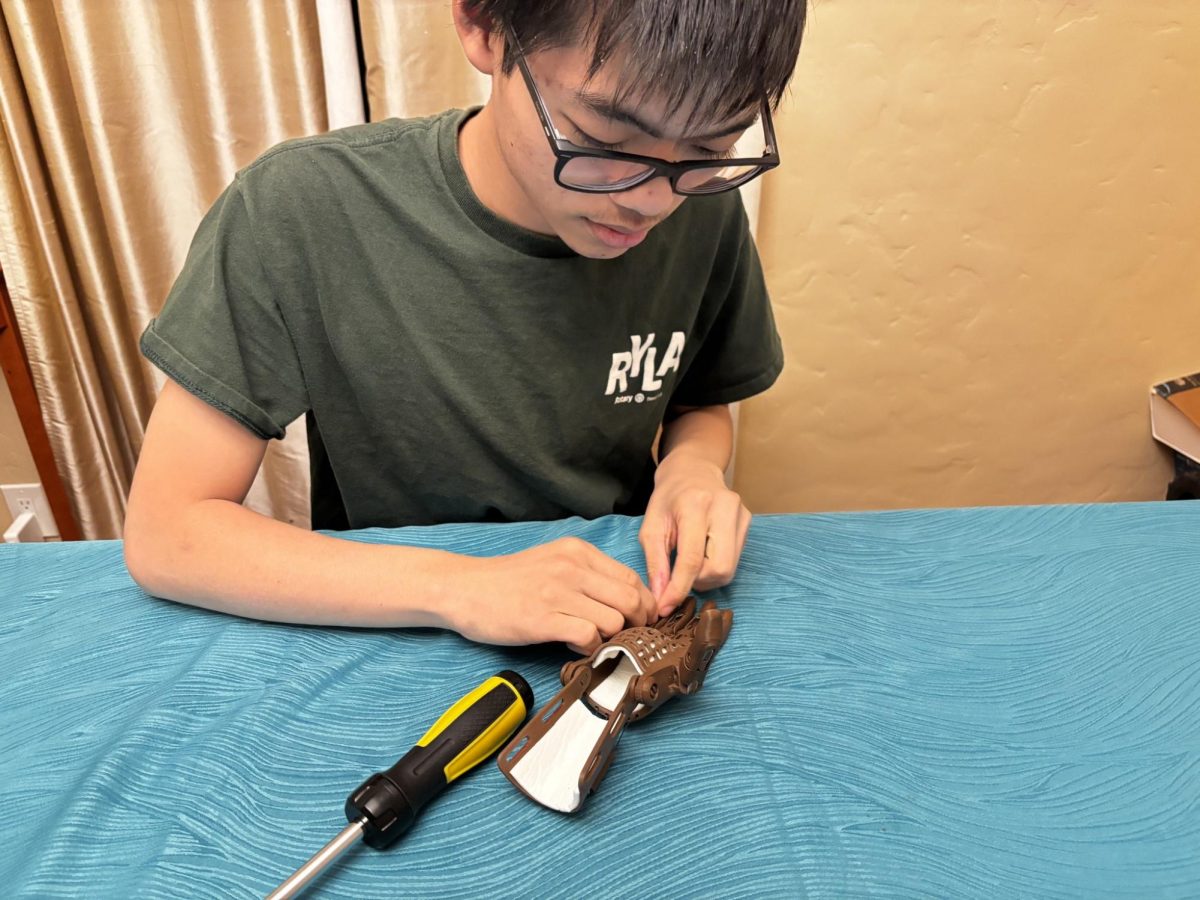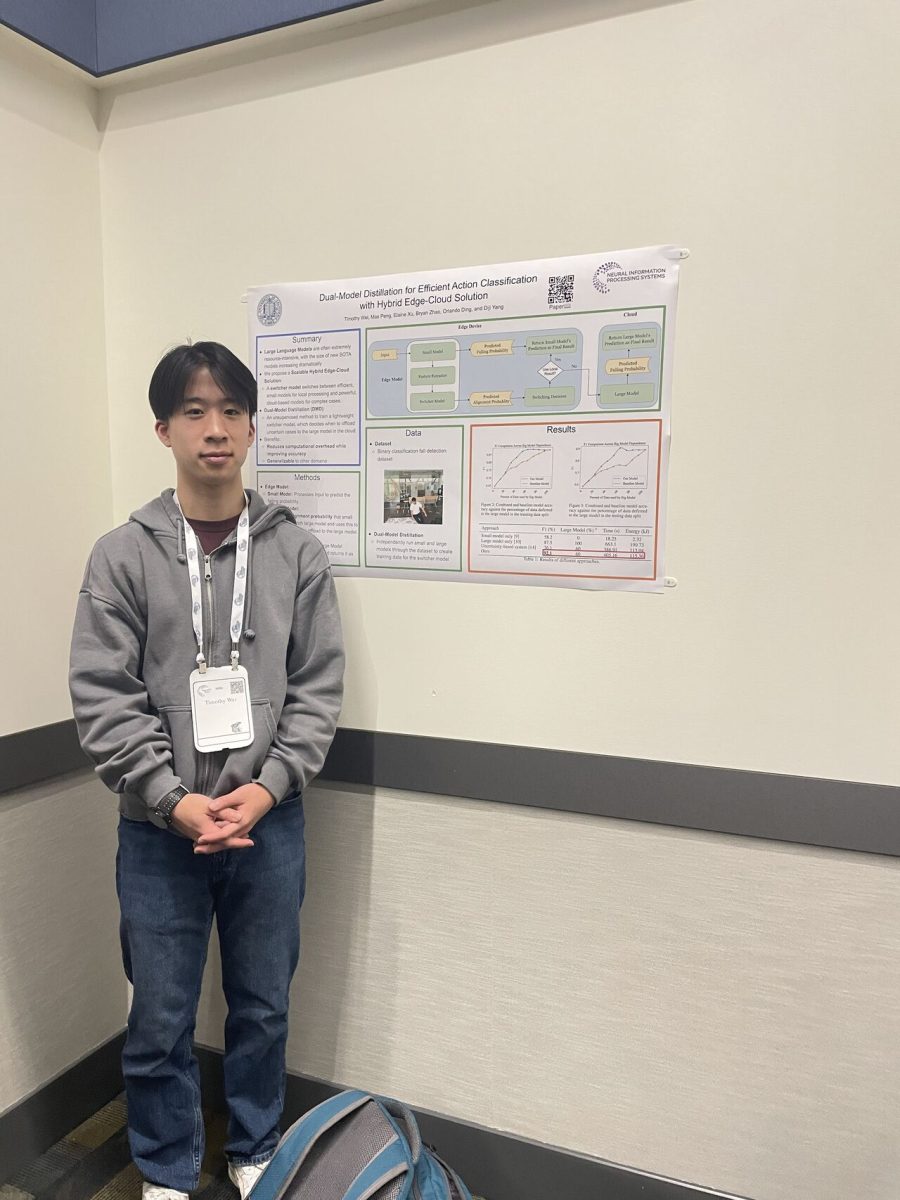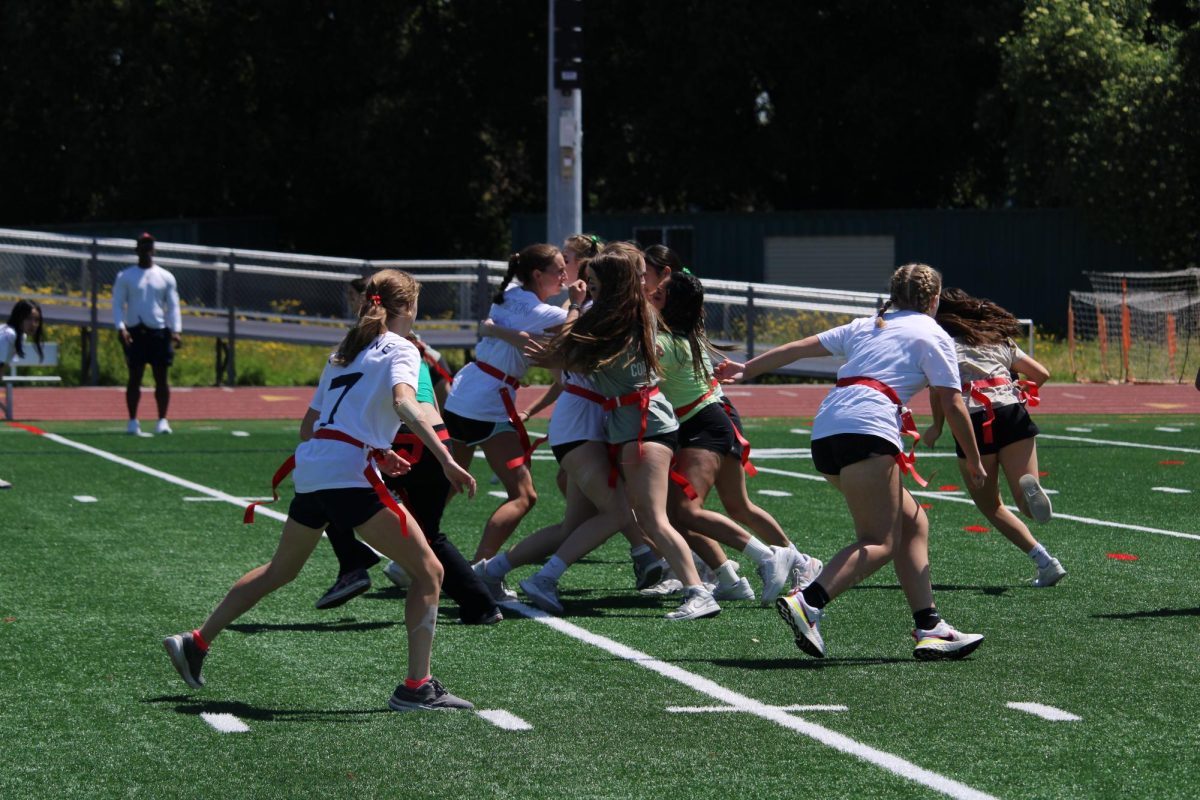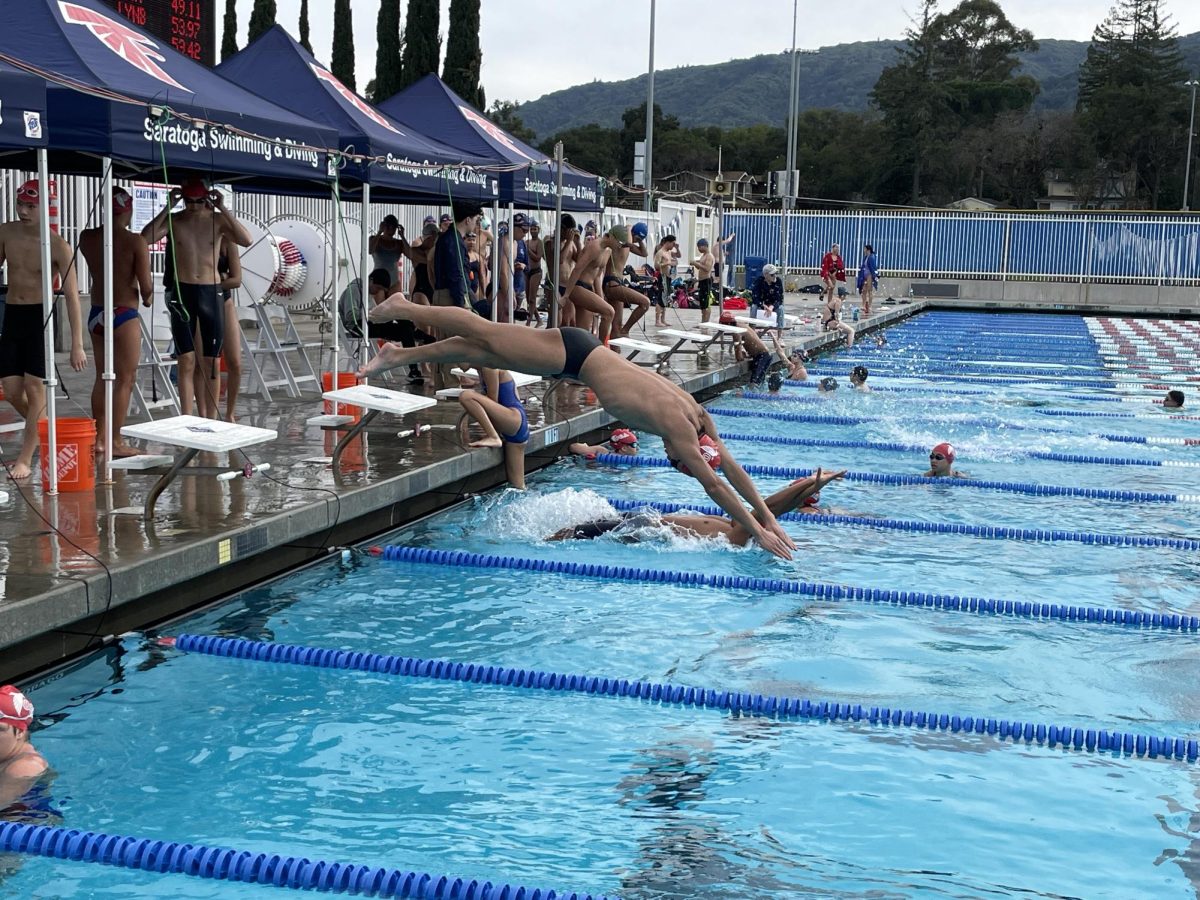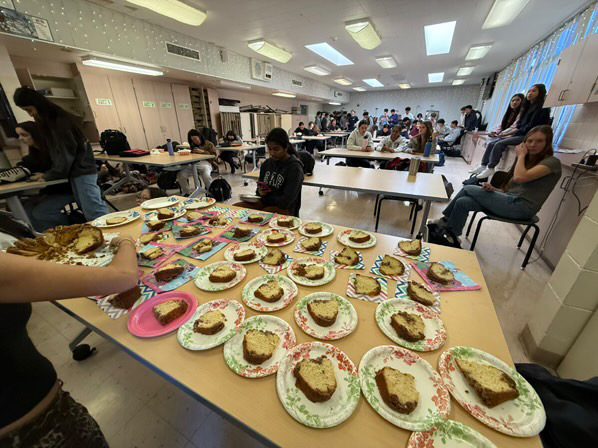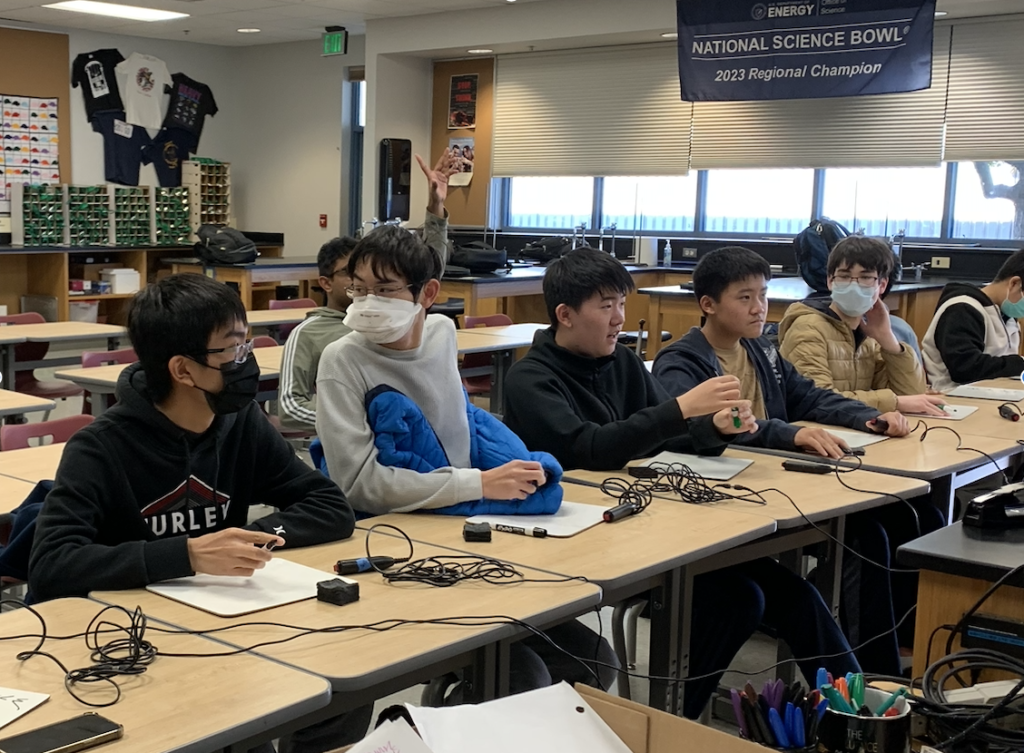Sophomore Warren Chee stared intently at his whiteboard while racing to figure out a solution for a chemistry problem. With two seconds to spare on the clock, he slammed the buzzer and blurted, “144.”
To Chee’s surprise, it was the correct answer. Although it was only a practice question during a Science Bowl meeting, the pressure felt comparable to a real Science Bowl tournament.
Chee is one of around 14 members on this year’s team. Led by senior captain Advaith Avadhanam and junior co-captain Skyler Mao, the group consists of freshman Seabert Mao, sophomores Warren Chee, Willis Chung, Alex Ge, Quinn Gifford, Arjun Krish, Ethan Pan, and Max Rombakh, junior Alan Cai, and seniors Simarya Ahuja, Levana Lai, and Nikhil Mathihalli. The A team and B team haven’t been finalized yet.
Science Bowl is looking to imitate their success from the previous season, where they placed first in the Stanford Linear Accelerator Center (SLAC) regional championship. That win qualified them for Nationals where they went on to place 18th overall.
“Last year, Class of `23 alumni like Nilay Mishra, Adam Xu and Anthony Wang were a really important part of our team; they were knowledgeable and had lots of experience,” Avadhanam said. “Luckily, we have many sophomores and juniors that are rising up to the occasion.”
In a typical Science Bowl tournament, two teams of five members compete against each other at a time. Saratoga Science Bowls sends two competitive teams, Team A and B, to regional and National competitions. Both the regionals and Nationals start with a “round robin” style tournament where teams are separated into groups and compete with all other teams in the specified group. The top teams then move on to compete in a double-elimination tournament.
Speed is an essential part of Science Bowl, as opportunities to score extra points through bonus questions rely on the team’s performance. Teams respond to as many questions as possible in each 16-minute round. They can answer up to 46 total questions including 23 toss-up questions worth 4 points and 23 bonuses worth 10 points. For toss-ups, both teams are allowed to buzz in and give the answer. The first team to give the correct answer in the allotted time of five seconds is then offered a 20-second bonus question on the same subject.
“Science Bowl is very fast-paced, one minute a team can be leading by 50 or 60 points, and two minutes later the lead can be gone,” Avadhanam said. “It’s really fun and is a great way to connect and learn with a community of other people who really love science.”
Meetings are held every Blue Day Wednesday or Thursday after school in room 1011 where students review textbook reading and practice buzzing. Chemistry Honors teacher Kathy Nakamatsu advises and coaches the group. Officers also consistently assign science textbook readings to members to strengthen general knowledge.
This year, Mao and Avadhanam have emphasized assigning readings in historically weak subjects, including Earth Science and Chemistry. According to Mao, captains encourage members to specialize in one particular scientific field out of math, chemistry, biology, earth and space, energy and physics. Dividing the team into groups based on subjects helps them maintain deep coverage of all topics, he said.
The team has historically been strong at subjects such as physics, biology and math, as many members have experience competing in those respective Olympiads.
“Through Science Bowl, I’ve been able to focus more on physics. I really like physics because it’s logical and problem-solving based, unlike many that rely on memorization,” Rombakh said.
Along with practice competitions during practices, members review information from textbook readings assigned for the topic they specialize in. After around 15 minutes of review, members engage in inter-team buzzing competitions to prepare for regionals.
While official Science Bowl competitions start in February and March, the team attended the Berkeley Science Bowl tournament on Dec. 3 and placed 11th during the round robin stages, eventually getting eliminated in the double elimination bracket. The Berkeley Science Bowl tournament is organized similarly to an official Science Bowl competition and Skyler Mao believes that it emulates a similar environment of official competitions.
“Our team has been working really hard and by enforcing stricter practices to prepare the teams, we hope to do the same, if not better, than last year,” he said.






